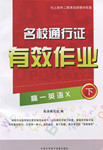题目内容
All this snow and ice makes it difficult for old people to ________ very well.
- A.get around
- B.move in
- C.stand up
- D.come about
get around:活动;雪和冰使得老人出行困难。

 名校通行证有效作业系列答案
名校通行证有效作业系列答案Food makes us feel good, but some people eat when they aren’t really hungry and eat to simply feel good. This kind of eating habit is called emotional eating, which does not affect adults but also young children. It isn’t a good thing.

A child’s eating habits can develop right from childhood. As we know, a baby cries out if he doesn’t get milk at the usual time of the day. However, sometimes parents immediately stick a bottle in a child’s mouth without trying to find out if the child is really hungry. In fact, children may cry for other reasons. Even as children grow up and start going to school, parents sometimes give them a chocolate bar if they become really unhappy. As the children further grow up, they may become used to having a snack whenever they’re upset or low.
Therefore, they’d like to eat an emotional snack when they have the feeling of unhappiness and boredom. Even when they don’t get high grades, aren’t popular at school or made fun of by others, they will want something to eat. After having the snack, they feel a lot better.
Emotional eating in young children is a thing that needs to be taken seriously. To protect your children from emotional eating, you should satisfy your child’s emotional needs in the best possible way. This includes spending time with your child every day, taking an interest in his school work, helping your child study, providing a health environment without tension at home, etc. Don’t make the child lose face by scolding him. Develop confidence in your child. Make your child eat enough once in a while. Reward him for his achievements.
All this will help your little one develop a healthy eating habit. And always remember love and care is the key to help you child out of trouble and grow up happily.
Title: ?? 1.?? in Young Children
?? 2.?? | Eating for feeling good instead of for ?? 3.?? . |
Causes | forming the habit when ? 4.? feeling? ? 5.? ? feeling ? 6.? and getting low grades being made fun of by others |
7.? | staying with your child for some time every day being ? 8.? in your child’s studies and help him study providing a healthy environment without tension at home avoiding ? 9.? to make him ashamed making your child ? 10.? in himself giving your child enough to eat once in a while giving your child reward for what he has achieved |
Conclusion | Love and care helps children out of trouble. |